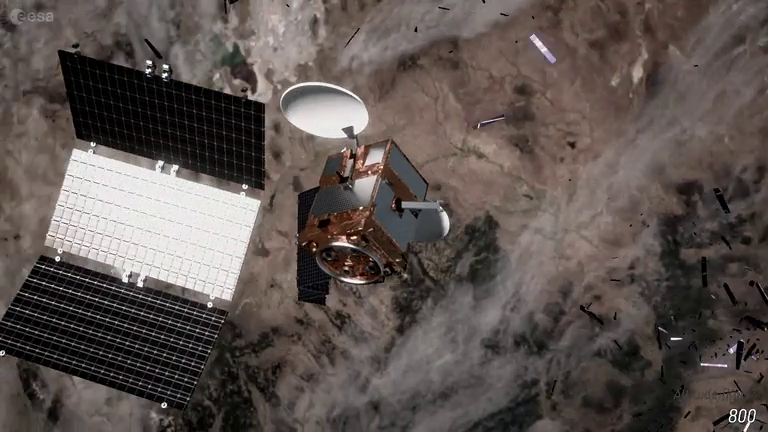If current practices of uncontrolled rocket re-entries continue, there is a 10 percent possibility that one or more casualties will occur over the course of the next decade, and they will almost certainly be in the Global South.
The risk of injuries to people on land, at sea, and in airplanes exist since most space launches result in uncontrolled rocket body reentries. While older rocket bodies continue to reenter the atmosphere due to gas drag, more rocket bodies are being left in orbit, despite the fact that these risks have long been thought to be unimportant.

Space Rockets, Debris Falling From Space Might Kill You In The Next Decade
In the study titled "Unnecessary risks created by uncontrolled rocket entries," researchers calculated the potential risk that uncontrolled rocket body re-entries have on human life over the next 10 years. The experts based their claim on more than 30 years' worth of data from a public satellite catalog.
According to the estimate obtained by Interesting Engineering, there is a 10% possibility of one or more fatalities over the following decade if a normal rocket re-entry scatters debris over 10 m2 (108 feet2) using current techniques.
But since everything that goes up must eventually come down, the bulk of orbits are discovered to be in equatorial regions, which puts the Global South - or the southern hemisphere - at higher risk when rocket debris returns to Earth, according to the study's experts.
Compared to places like New York, Beijing, or Moscow, cities like Jakarta (Indonesia), Mexico City (Mexico), or Lagos (Nigeria) have a three times higher risk of being struck by lightning.
How to Prevent Space Junk From Hitting A Person
As more countries and private enterprises launch rockets into orbit, more disconnected components hang out in space. A new world record of 133 successful launch attempts was set in 2021, Ars Technica reported. But SpaceFlightNow mentioned that space firms intend to beat it in 2022. According to the article, more than 60 percent of launches left their rocket bodies in orbit, where they continued to circle the Earth for days, months, or even years.
Less than 50 percent of the Earth's surface isn't continuously covered in ice and has remained mostly unoccupied and unaffected by people, according to earlier research. However, as the current research demonstrates, there is still a possibility that rocket debris will strike inhabited areas. The scientists showed a curve in the likelihood for components to crash at regions with at least some human occupancy by using data on typical orbit angles and population figures at different latitudes.
So what should countries be doing to prevent unchecked reentries? Most of these measures cost money, even though the technology for controlled re-entries is becoming more widespread. Controlled reentry requirements may become a competitive issue with the growth of private enterprises like SpaceX. However, the authors of the new report asserted that it might be required to go so far as to push a global convention through the UN.
"The states of the global south hold the moral high ground; their citizens are bearing most of the risks, and unnecessarily so, since the technologies and mission designs needed to prevent casualties exist already," researchers said, Gizmodo reported.
RELATED ARTICLE : Space Debris the Size of an Eraser at the End of a Pencil Travelling at 15,000MPH Created an Enormous Crater
Check out more news and information on Space in Science Times.
© 2026 ScienceTimes.com All rights reserved. Do not reproduce without permission. The window to the world of Science Times.












